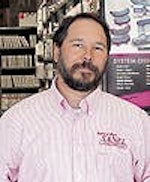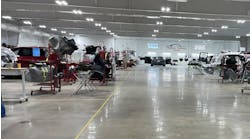The city has passed an ordinance that allows police to issue a $500 ticket to any bike built after 1982 that does not have an Environmental Protection Agency (EPA) sound certification stamp on its exhaust system. What this means is if you need to replace your exhaust, you might only have one option — OEM — if it's still available, that is. If not, look for a new bike. It doesn't even matter that motorcycles aren't the most numerous offenders; they're just the easiest to finger.
This little bit of news might not mean much to most people, and I'm willing to bet there are some folks who wonder what took them so long to get around to passing it. There's more to this than just making things a little quieter, though.
The fact that all riders are being singled out for something most are not responsible for is not the only reason this affects us.
Anything that forces motorists back to the OEM for parts or service is bad for our industry, no matter what segment of the market you're in.
More specifically, how much responsibility do the manufacturers and dealers of aftermarket parts and accessories bear for the proper use of their products? Is the industry as a whole responsible only for making short-range profits, or should we be concerned with the long-range health of our industry?
In the case of motorcycle exhaust, most systems designed to make more noise than stock usually have a caveat about being for "off-road or racetrack use only."
Sounds a lot like the warnings that came with all of those catalytic converter "test pipes" I sold back in the early 1980s. I was always amazed at how long some of those converter "tests" went on. You would think that after a year or two, you would have enough real-time data to know if the cat that was taken off was plugged or not.
On a more immediate note, what about the guy who tells you he needs a short piece of rubber hose and some clamps to repair a brake line? You know it won't work. You know it will create a dangerous situation if they do manage to get any brake pedal, but the customer is insistent.
Do you pretend you don't know what he's planning to do and make the sale? Do you refuse to sell to him?
In either case, you know the customer is trying to circumvent common sense and law, and ultimately might present a real danger to other motorists. Are you willing to be the bad guy and not sell the customer something that you know will be used in an unsafe or disruptive manner? Or do you take the position that once you sell something, it's the customer's responsibility to use it correctly?
It's a thorny issue no matter how you try to get a grip on it, but it's something that everyone in our industry needs to think about.
The alternative is that sooner or later a government entity will get involved. Once that happens, nobody wins; we all just get brought down to a common point that doesn't provide the intended benefits, but it makes it look like somebody's taking action.
Denver's legislation affects only a small portion of the motoring public, but if you happen to be one of them, it probably seems onerous. Now imagine a law that prohibits any alterations that affect vehicle fuel economy.
The OEMs and the bureaucrats would have a field day with that, and who do you think the big loser would be then?
Mike Gordon, a 20-year counter sales veteran, works the counter at Sanel Auto Parts, Concord, N.H.



